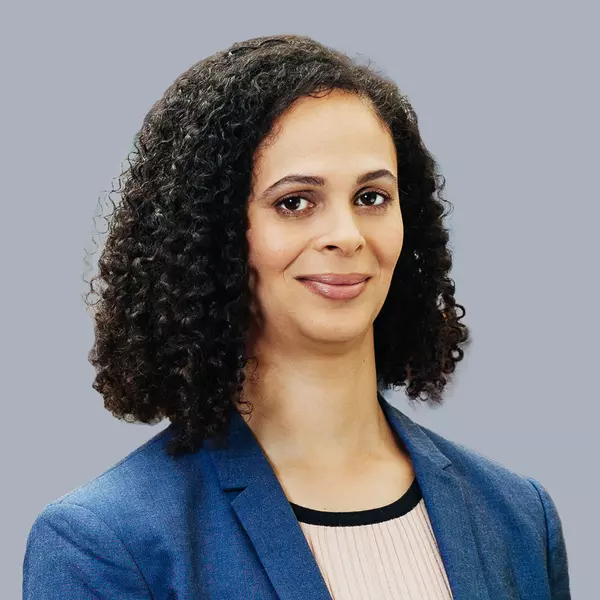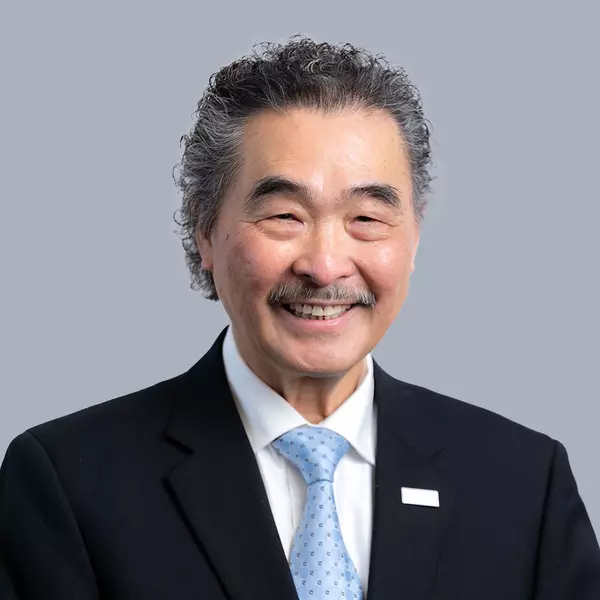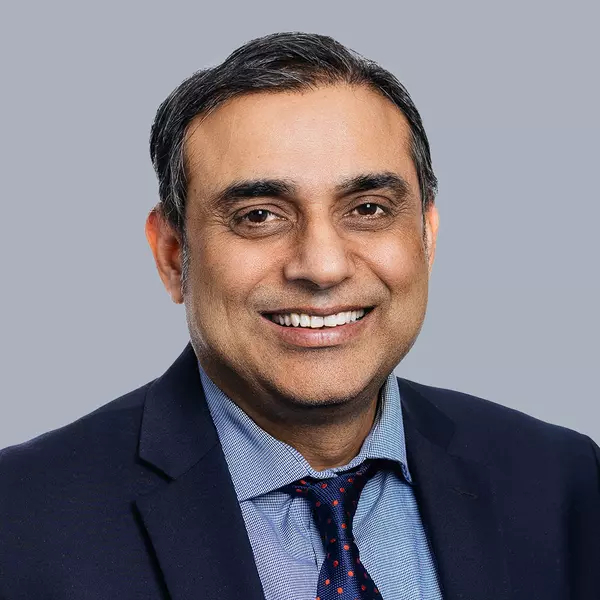AMAPCEO has two principal governing bodies to which members elect representatives: the Annual Delegates' Conference (ADC) and the Board of Directors.
The Board of Directors consists of:
- Eleven District Directors, each directly elected by and representing one of AMAPCEO's geographic districts
- Four Executive Officers—the President, Vice-President, Secretary and Treasurer—each elected at the ADC, who, along with a Board Chair elected by District Directors, together make up the Executive Committee
The Board of Directors is responsible for:
- preparing policies for consideration by the ADC;
- implementing the decisions of governance bodies;
- spending funds in accordance with the annual budget;
- interpreting the AMAPCEO Constitution;
- overseeing the bargaining process for all units; and
- exercising authority not specifically assigned to the Delegates.
Directors are members of and accountable to the Annual Delegates’ Conference.
Learn more about the roles and responsibilities of the Board of Directors »
Executive Committee

Dave Bulmer, President/CEO
Dave is a long-time employee of the Ontario Ministry of Health, Emergency Health Services, Land & Air Ambulance Program. Prior to his election as President/CEO in 2015, Dave served a term as AMAPCEO Treasurer and two terms as Board Chair.
Dave is a member of the Ontario Pension Board (OPB). He lectures on industrial relations and public policy administration at several Ontario universities, and is a frequent panelist at labour, academic, and think tank events.
He holds an Executive MBA, and an Institute of Corporate Directors (ICD.D) designation from the University of Toronto’s Rotman School of Management.
Dave is a former elite level hockey coach and instructor with Hockey Canada and the proud Dad of two adult sons.

Cynthia Watt, Vice-President
Cynthia Watt worked for over 15 years in the OPS and was a Senior Policy Advisor in the Ministry of Training, Colleges and Universities when first elected Vice-President in 2015. Prior to joining the OPS, Cynthia worked, first as president and then as executive director, for the association representing Ontario college students.
Cynthia is a longstanding AMAPCEO activist, having served as Building Coordinator, Chapter Chair, Workplace Representative, member of the AMAPCEO-Ministry Employee Relations Committee for the Ministry of Training, Colleges and Universities, and Finance Committee member.
In 2014, Cynthia was a recipient of the AMAPCEO Builder Activist Award.

Paul Reddick, Treasurer
Paul has a wealth of experience in finance, in both the public and private sectors. Paul holds a Master of Business Administration (MBA) and is a certified program management professional (PgMP). As Treasurer, Paul’s focus is on communication, building strong relationships, ensuring transparency, and keeping members well informed.

Tim Sim, Secretary
Tim is a Senior Advisor with the Ministry of Indigenous Affairs. He currently serves as Co-Chair of the Indigenous Affairs Employee Relations Committee, a position he has held for many years.
An AMAPCEO member for over two decades, Tim has long history of active involvement with the union. Sim was an inaugural member of the union’s Human Rights (now Equity) Committee and was a Chapter Chair under the union’s former governance model. Tim has been a long-time Delegate, Workplace Representative (WPR), and Mentor.

Colleen Walsh, Chair of the Board of Directors; University District Director
Bio to come.
District Directors

Zinzi de Silva, Bay District

Kevin Giddings, GTA North District
With two decades in the Ontario Public Service, Kevin has a wealth of knowledge and experience that he brings to his current position in the Ministry of Health and Long-Term Care.
Kevin has been a proud AMAPCEO member and leader for over 15 years, beginning as an Information Coordinator and Building Coordinator and eventually becoming a Workplace Representative, Mentor, and member of the Ministry of Health and Long-Term Care’s Employee Relations Committee (AMERC). Kevin has also served as a Delegate and District Vice-Chair.
An avid sports fan, Kevin likes to spend his free time curling.

Jennifer Harewood, Front District
Jennifer Harewood came to the Ontario Public Service (OPS) as an intern with a passion for government and policy. Now, over two decades later, she is a Senior Policy Advisor with the Ministry of Education.
Jennifer’s activism within AMAPCEO started when she became a Delegate, and continued with her work as a Workplace Representative. Inspired by those who inspired her to get involved, Jennifer worked with other activists and Districts to launch volunteer recruitment fairs and social events to increase visibility in the workplace and drive new member sign ups.
Jennifer is an avid consumer of podcasts and political satire.

Alex Heim, Western District; Vice-Chair of the Board
Alex first joined the Ontario Public Service and AMAPCEO on a fixed term in 2011. He has since grown his leadership skills to secure his current role as the Ministry of Agriculture, Food and Agribusiness’s Strategic Modernization Lead.
Alex has become a more progressively involved activist within the union, having participated in first as a Delegate, then as a Workplace Representative, the Vice-Chair of his District Executive, and now as Director. He is also a proud member of AMAPCEO’s Pride Caucus.
Outside of work, Alex enjoys spending time with friends and family, traveling, reading, and gardening at home in Kitchener, Ontario.

Rocco Fasano, Queen's Park District

Victoria Marshall, Midtown District
A Communications and Stakeholder Relations Officer at the College of Midwives of Ontario, Victoria Marshall previously worked as a union organizer, including on the largest union drive in Canadian history, successfully organizing thousands of non-full-time staff at Ontario’s public colleges. She also successfully led the drive to organize her own workplace with AMAPCEO in 2022.
In her time at AMAPCEO, Victoria has enjoyed representing Midtown members at AMAPCEO events, including bargaining training, the Activist and Leaders Forum, the Annual Delegates' Conference, the Labour Day Parade, and lunch-time webinars and social events.

Hugh Montgomerie, Eastern District
Hugh Montgomerie is a Business Portfolio Program Manager with the ITS Division of the Ministry of Government and Consumer Services in the Ontario Public Service.
His volunteer experience with AMAPCEO is extensive, and includes serving as a Workplace Representative and Mentor, an AMERC representative, and a long-time Delegate.
Hugh was also a key member of the 2014 OPS Bargaining team, held the position of AMAPCEO Board Chair when AMAPCEO introduced the first-ever Strategic Plan, and jointly presided over the 2016 Special Delegates’ Conference that implemented the current Governance model.
Hugh resides in Oshawa with his wife and three children.

Tiziana Pauluzzo, Northern District
In her home position as a Contract Service Administrator with the Operations Office of the Ministry of Transportation, Tiziana is skilled at interpreting contract language and ensuring their terms are met.
Tiziana has been involved with AMAPCEO for over a decade and considers herself first and foremost a Workplace Representative, committed to ensuring members know their union has their back, regardless of where they are based.
In her spare time, Tiziana is a dedicated practitioner of both yoga and meditation, a practice she credits with giving her the much-needed energy and focus to defend her colleagues’ rights.

Frank Tang, Toronto Centre District
Currently a member of the Supply Ontario bargaining unit, Frank previously worked for the OPS for many years.
A dedicated AMAPCEO volunteer, Frank has served a number of different roles within our union, including as a Chapter Chair, a Zone Coordinator during mobilization, a Joint Health & Safety Committee member, and a founding member of the Diversity and Inclusion Committee. He was first elected by members of the Toronto Centre District (formerly Jarvis/Yonge) as their Director in 2016.

Jawad Tanweer, College Park District
An OPS employee since 2005, Jawad Ali currently works as a Senior I&IT Project Manager within the Ministry of Solicitor General and Ministry of the Attorney General. Throughout his time at the OPS, Jawad has won various awards, such as Amethyst and OPS Project Management Excellence, Excelsior and Edge.
Jawad has a long history of involvement with AMAPCEO, including serving as a Delegate, a Workplace Representative, and Vice-Chair and Treasurer of the Bay Street District. He has represented AMAPCEO members at the Employee Relations Committee and Workplace Relations Committee.
Resources
Board Committees
In addition to their other responsibilities as outlined above, the Board of Directors is responsible for appointing the members to the following committees, and considering the committees' recommendations. Additionally, a Director may serve as the Board Liaison for a committee.
The Activist Recognition Committee is responsible for inviting nominations for, and selecting recipients of, awards recognizing achievements by AMAPCEO activists.
The Equity Committee develops proposed policies, offers advice, and makes recommendations to the Board of Directors to ensure that AMACPEO remains a member-driven, accessible organization committed to inclusivity.
The Health, Safety & Wellness Committee, through education and promotion and with a problem-solving approach to issues, fosters an environment of health, safety, and wellness for members and the families both within and outside the workplace.
The Workplace Relations Committee administers the formal dispute resolution processes contained within the AMAPCEO collective agreements. It also develops, administers, and evaluates policies, procedures, and training for workplace representation; monitors employers’ application of agreements; and works with other AMAPCEO committees and representative bodies when needed.
Membership on these committees is open to all signed members.
Board of Directors Meeting Minutes (sign-in required)
2025
Board Minutes: October 7 - 8, 2025
Board Minutes: September 10, 2025
Board Minutes: July 28, 2025
Board Minutes: June 24, 2025
Board Minutes: May 14, 2025
Board Minutes: April 23-24, 2025
Board Minutes: March 17 - 19, 2025
Board Minutes: February 19 - 20, 2025
Board Minutes: January 22 - 23, 2025
2024
Board Minutes: December 18, 2024
Board Minutes - November 6, 2024
Board Minutes: October 8 - 9, 2024
Board Minutes: September 18 - 19, 2024
Board Minutes: August 28, 2024
Board Minutes: July 4, 2024
Board Minutes: June 17 -18, 2024
Board Minutes: May 15 - 16, 2024
Board Minutes: April 16 - 17, 2024
Board Minutes: March 19 - 21, 2024
Board Minutes: February 21 - 22, 2024
Board Minutes: January 23 - 24, 2024
2023
Board Minutes: December 14, 2023
Board Minutes: November 16, 2023
Board Minutes: October 5, 2023
Board Minutes: September 20 -21, 2023
Board Minutes: August 23, 2023
Board Minutes: June 27 - 28, 2023
Board Minutes: April 19 - 20, 2023
Board Minutes: March 21 - 23, 2023
Board Minutes: May 18 - 19, 2023
Board Minutes: February 15 - 16, 2023
Board Minutes: January 18 - 19, 2023
2022